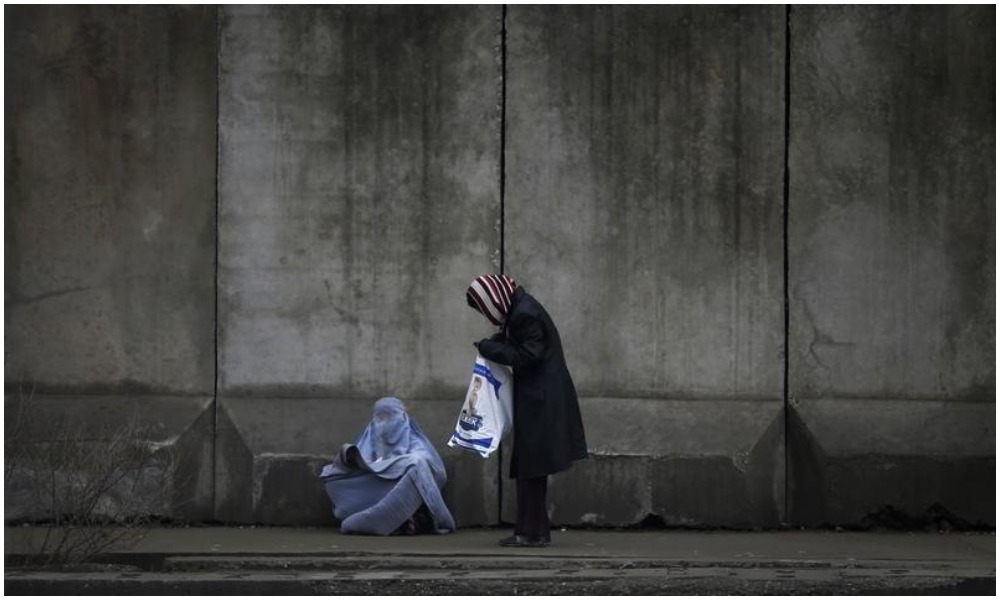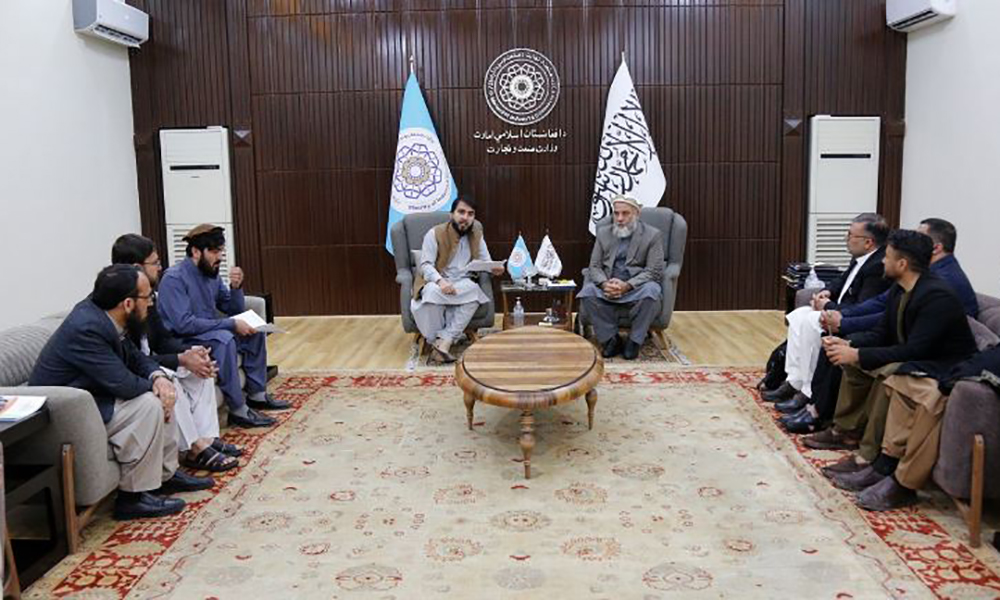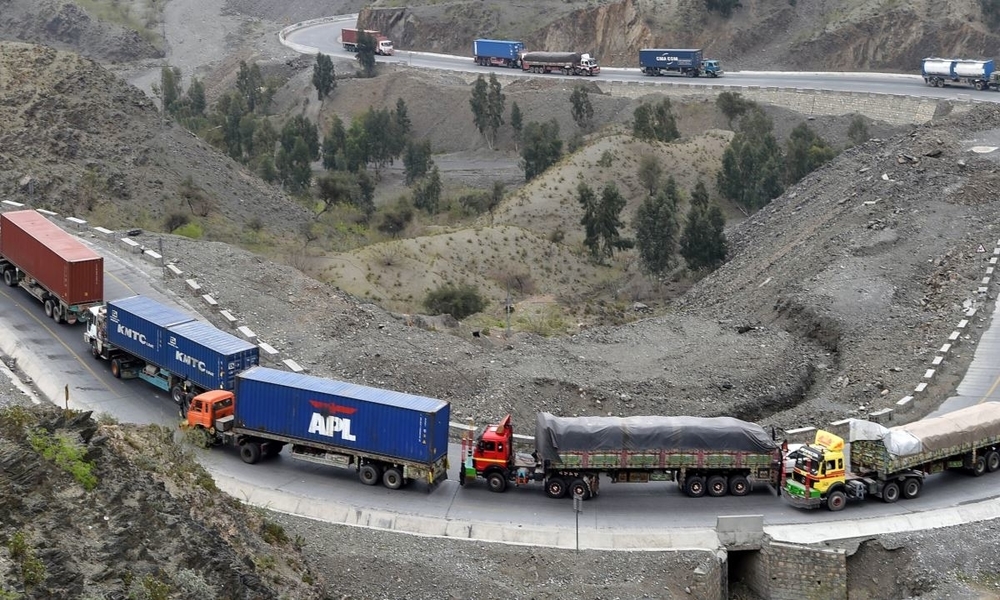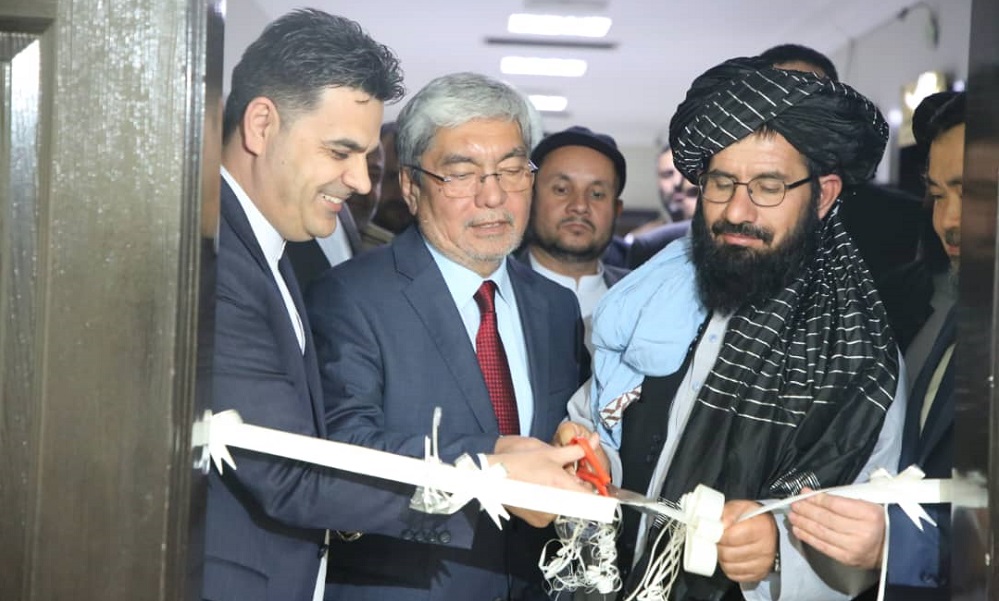Business
World Bank warns of increased poverty due to COVID-19 shock

The World Bank has stated that a clear commitment from international partners to continue grant support would help reduce uncertainty and improve investor confidence in Afghanistan which would in turn enable the country to recover from the severe impacts of the COVID-19 crisis.
In its twice-yearly report, the World Bank stated that South Asia as a whole is set to plunge into its worst-ever recession due to the pandemic which will take a heavy toll on informal workers and push millions of people in the region into extreme poverty.
According to the report, although Afghanistan experienced moderate growth in 2019 as the agricultural sector recovered from the impacts of drought, the economy is estimated to have contracted sharply in the first half of 2020 due to economic disruptions associated with nation-wide lockdowns, border closures, and declining remittance inflows.
In addition, the report stated that medium-term prospects are subject to high levels of uncertainty, related to the COVID-19 pandemic, peace talks and future international security and aid support.
“Given the shock to the economy, poverty is expected to increase in 2020,” the report stated.
While there was significant growth in wheat production, the World Bank said this was not enough to offset the large negative impact of COVID-19 on other sectors of the economy.
The World Bank stated that while inflation was low in 2019 (averaging 2.3 percent) it increased significantly in 2020.
One reason was that in March and April 2020 – during lockdown – panic buying and import disruptions resulted in a sharp increase in food prices, which led government to adopt administrative measures to prevent price gouging.
Government also initiated an emergency wheat distribution program that resulted in a food inflation decline in the months that followed.
In the first quarter of 2020 Afghanistan registered a growth in exports of 11 percent year-on-year, which reflected the improved performance of air corridors. However, a weak domestic demand led to a 14 percent decline in imports.
“In the second quarter of 2020, both imports and exports fell precipitously given border closures and disruptions to trade and transportation, with greater absolute declines in imports driving an improvement in the trade and current account balances,” the report read.
With the onset of the COVID-19 crisis, weak economic activity, disruptions to trade and compliance, revenue performance deteriorated significantly and revenue estimates for 2020 were revised downward by over 30 percent (from Afs 209 billion to 144 billion) in the budget mid-year review.
“Total domestic revenue collection at end-June reached Afs 74.7 billion, 20 percent lower than the initial budget target,” the report stated.
Poverty meanwhile is believed to have worsened in 2019 surpassing 54.5 percent amid continued violence and political uncertainty and “in the first half of 2020, with declining household incomes due to economic hardship, higher food prices due to COVID-19, a significant fall in remittances, and high returnee flows, poverty is estimated to have further increased,” the report read.
According to the report, the outlook for the rest of 2020 was grim as the GDP is expected to contract by 5.5 percent – again largely due to the impact of the pandemic.
“In following years, the pace of recovery is expected to be constrained in a context of continued insecurity, uncertainties regarding the outcome of planned peace talks, and questions about the level and duration of international security and aid support.
“The trade deficit is projected to narrow to 26 percent of GDP down from 30.4 percent in 2019. While exports are projected to fall by 24 percent, imports are expected to decline by around 18 percent,” read the report.
World Bank analysis meanwhile suggests that the combination of reduced incomes and higher prices could drive the poverty rate to as high as 72 percent in the medium term.
“Over the medium term, the poverty outlook hinges on the pace of economic recovery and the continued provision of international aid and humanitarian support,” the report read.
“The main source of downside risk to the outlook stems from possible further adverse COVID-19 developments,” the World Bank stated adding that additional sources of risk include further political instability, a deterioration of security conditions, uncertainties associated with the planned peace agreement with the Taliban, and precipitous reductions in aid flow.
“By contrast, on the upside, a sustainable and credible political settlement with the Taliban could help boost growth, confidence and private investment,” the bank stated.
In terms of recommendations, the World Bank stated that given Afghanistan’s declining revenues and constrained fiscal potential, public expenditures need to be carefully directed to protecting the vulnerable, limiting long-term economic damage, and establishing solid foundations for economic recovery.
“To support households, the government should prioritize: i) targeted social protection measures; and ii) ensuring the continued provision of basic services, especially healthcare.
“To support the private sector, priorities include: i) pursuing business regulatory reforms to facilitate new investment; ii) expanding access to credit; iii) ensuring the continued provision of basic infrastructure; and iv) avoiding accumulating arrears to private sector vendors.”
Business
Commerce ministry inks 10 MoUs to boost development of small and medium-sized businesses

The Ministry of Commerce and Industry said Thursday it has signed cooperation agreements with ten institutions to support the development of small and medium-sized enterprises.
Nooruddin Azizi, Acting Minister of Commerce and Industry, said: “In the implementation of projects, we must pay special attention to our activities and actions and try to make useful use of the projects according to the requirements and benefit the beneficiaries.”
These ten institutions are to present their projects, the total value of which is around over $1.1 million. The projects will be carried out in Kabul, Baghlan, Ghor, Herat, Logar, Nangarhar, Balkh, Badakhshan and Jawzjan provinces and provide direct jobs for about 1,000.
To date, the ministry has signed MoUs for 72 projects in total, collectively valued at about $53.6 million.
These agreements have been signed with domestic and foreign companies for the establishment of small and medium-sized businesses.
In accordance with the principles and laws of the Islamic Emirate and prioritizing the implementation of projects for immigrants and returnees and internally displaced people, the ministry said 635,865 people will benefit through jobs directly and over 4.3 million will benefit indirectly in 25 provinces once these projects are implemented.
Business
Export volume totals over $140 million in last month of 1402

The National Statistics and Information Authority (NSIA) confirmed Tuesday that in the last month of solar year 1402, (March 2024) Afghanistan’s exports totaled $141.1 million and imports totaled $789.6 million.
This was down from $174 million for exports in the same period in 1401. However, imports increased by $99.2 million in 1402, up from $690.4 million.
Most exports in the last month of 1402 went to Pakistan, India and the United Arab Emirates, while in the last month of 1401 exports went to Pakistan, India and China.
Business
Afghanistan-Kazakhstan chamber of commerce opens in Herat

The Ministry of Interior said the governor of Herat province Islam Jar met with Alim Khan Yasin Gildaye, Ambassador of Kazakhstan to Afghanistan, to discuss various issues around trade.
According to the ministry, the two sides discussed the expansion of trade facilities, increasing the volume of trade exchanges between traders of the two countries, reducing customs tariffs, solving the challenges of traders and issuing visas to them.
The Afghanistan-Kazakhstan Chamber of Commerce has been opened in Herat in order to facilitate and increase trade between the two countries.
-

 Sport5 days ago
Sport5 days agoACL fever grows as fixtures finalized
-

 World5 days ago
World5 days agoUS will not take part in any Israeli retaliatory action against Iran
-

 Latest News5 days ago
Latest News5 days agoOver 50 people dead in traffic accidents over Eid
-

 Latest News4 days ago
Latest News4 days agoUS identifies Kabul airport suicide bomber
-

 Business5 days ago
Business5 days agoAfghanistan-Kazakhstan chamber of commerce opens in Herat
-

 Latest News5 days ago
Latest News5 days agoGood rains enable DABS to increase power production in Kabul
-

 World4 days ago
World4 days agoIsraeli military vows response to Iran attack as calls for restraint mount
-

 Sport3 days ago
Sport3 days agoATN secures exclusive rights to broadcast Paris 2024 Olympics
























